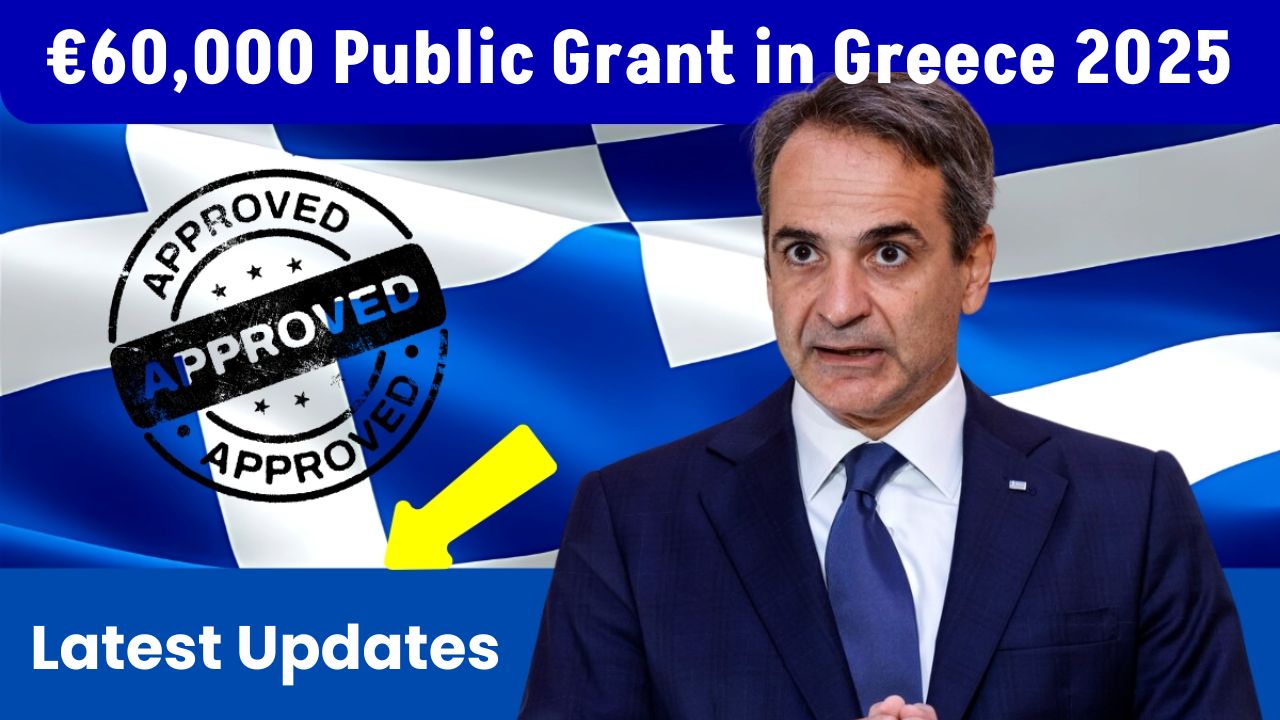€60000 Public Grant in Greece 2025 : The afternoon sun filters through the dusty blinds of our small office in Athens as I sift through funding opportunities that could keep our refugee support program running for another year. The usual options are there EU structural funds with their complex application processes, corporate grants with narrow focus areas, and then something new: a public call for unsolicited grant proposals, specifically targeting Greek NGOs that have struggled with funding since the financial crisis.
“Maria, have you seen this?” I call to our program director, who has been with the organization since the height of the refugee crisis. She glances over my shoulder at the announcement, a flicker of interest in her eyes.
“This is different,” she says, scanning the eligibility criteria. “They’re actually looking for well-established organizations with a proven track record not just the latest trendy initiatives. And the focus areas include social integration work.”
After years of navigating the complexities of NGO funding in Greece, opportunities like this unsolicited grants program are a breath of fresh air for organizations on the frontlines of social change. Let’s explore what this grant offers, who is eligible, and how local NGOs can position themselves for success.
Understanding the Unsolicited Grants Framework
This newly announced public grant program marks a significant shift in Greece’s approach to supporting civil society organizations. Unlike traditional grants with pre-defined project guidelines, this framework invites NGOs to propose initiatives based on their assessment of community needs and organizational strengths.
Administered by the Ministry of Labor and Social Affairs in partnership with the European Economic Area (EEA) Financial Mechanism Office, this program aims to strengthen Greece’s nonprofit sector and address social challenges that have intensified during the economic crisis.
Key Grant Details
- Grant Amount: €20,000 to €200,000 per project
- Implementation Period: 12 to 36 months
- Matching Requirement: None for grants under €60,000; 10% for larger grants
- Number of Grants Available: Approximately 25-30
- Total Budget: €4 million
Eligibility Criteria
To qualify, organizations must:
✔️ Be legally registered as a nonprofit entity in Greece for at least three years
✔️ Have implemented at least two projects related to their proposed intervention
✔️ Demonstrate financial stability through annual reports and audits
✔️ Have no pending tax or social security issues
✔️ Not be undergoing bankruptcy or liquidation proceedings
Unlike many EU grants, prior experience with EEA or EU funding is not required—making this opportunity accessible to a broader range of Greek NGOs.
Geographic and Thematic Focus Areas
This national grant program prioritizes organizations working in:
📍 Greek islands facing severe social challenges
📍 Remote mainland areas with limited social services
📍 Urban neighborhoods with high concentrations of vulnerable populations
Thematically, the grant covers five key focus areas:
| Focus Area | Eligible Activities | Budget Allocation (%) |
|---|---|---|
| Social Integration | Refugee, migrant, and Roma community programs, language training, cultural mediation | 30% |
| Poverty Reduction | Food security, housing support, financial literacy, employment-focused social enterprises | 25% |
| Healthcare Access | Mobile medical units, mental health support, addiction services | 20% |
| Education & Skills | Alternative education models, vocational training, digital literacy | 15% |
| Environmental Justice | Urban greening, climate adaptation, environmental education | 10% |
Projects that address multiple focus areas are encouraged, recognizing the interconnected nature of social challenges.
Application Process & Evaluation Criteria
Required Documents:
📌 Organizational Profile (max 5 pages)
📌 Project Proposal (max 10 pages)
📌 Budget & Implementation Timeline
📌 CVs of Key Personnel
📌 Financial Statements (Last 2 Years)
📌 Support Letters from Stakeholders (optional but recommended)
Evaluation Criteria:
✅ Relevance to focus areas (25%)
✅ Expected impact & beneficiary reach (25%)
✅ Implementation methodology & feasibility (20%)
✅ Organizational capacity & experience (15%)
✅ Budget justification & cost-effectiveness (15%)
Application Timeline:
1️⃣ Administrative Review (1-2 weeks)
2️⃣ Technical Evaluation (6-8 weeks)
3️⃣ Final Selection & Contract Negotiation (4 weeks)
The Ministry aims to complete evaluations within three months, with projects expected to start one month after selection.
Tips for a Strong Application
✅ Highlight Local Knowledge & Community Engagement
Demonstrate your organization’s deep connections with the communities you serve. Evaluators favor projects tailored to specific local needs.
✅ Balance Proven Approaches with Innovative Adaptations
This grant prioritizes sustainable, evidence-based interventions over experimental solutions. Showcase past success while adapting to new challenges.
✅ Plan for Long-Term Sustainability
Strong proposals outline how the project will continue impacting the community even after funding ends—through partnerships, skills training, or integration into public services.
Common Mistakes to Avoid
❌ Overambitious Scope & Unrealistic Projections
Avoid exaggerated impact claims that don’t align with your organization’s capacity or budget.
❌ Weak Budget Justification
Ensure transparency in expense breakdowns and avoid allocating disproportionate amounts to administrative costs.
❌ Submitting Generic Proposals
Customize your application specifically for this grant rather than repurposing past proposals.
Looking Ahead: A New Era for Greek NGOs?
This program is a promising step toward more flexible and accessible funding mechanisms for Greek NGOs. If successful, it may lead to similar future initiatives that prioritize community-driven solutions over rigid, top-down funding structures.
For NGOs, this is more than just a grant opportunity it’s a chance to shape the future of nonprofit funding in Greece.
Frequently Asked Questions (FAQ)
💬 Can an organization submit multiple applications?
✅ Yes, but only for different projects. No organization will receive funding for more than one project.
💬 Do organizations need prior EEA or EU grant experience?
✅ No, experience with EU funding is not required.
💬 Can Athens-based NGOs apply for projects in other regions?
✅ Yes, but they must demonstrate strong local connections.
💬 Are partnerships with other organizations encouraged?
✅ Yes, but roles and budget allocations must be clearly defined.
💬 Can organizations already receiving other grants apply?
✅ Yes, but they must show they have the capacity to manage multiple projects effectively.
This grant could be a game-changer for Greece’s nonprofit sector. NGOs that develop strategic, realistic, and impactful proposals will be in the best position to secure funding and expand their vital work.
If your organization is eligible, start preparing your application now—this could be the support you’ve been waiting for!
This translation maintains the original tone, structure, and key details while ensuring it reads naturally in English. Let me know if you need any modifications.




